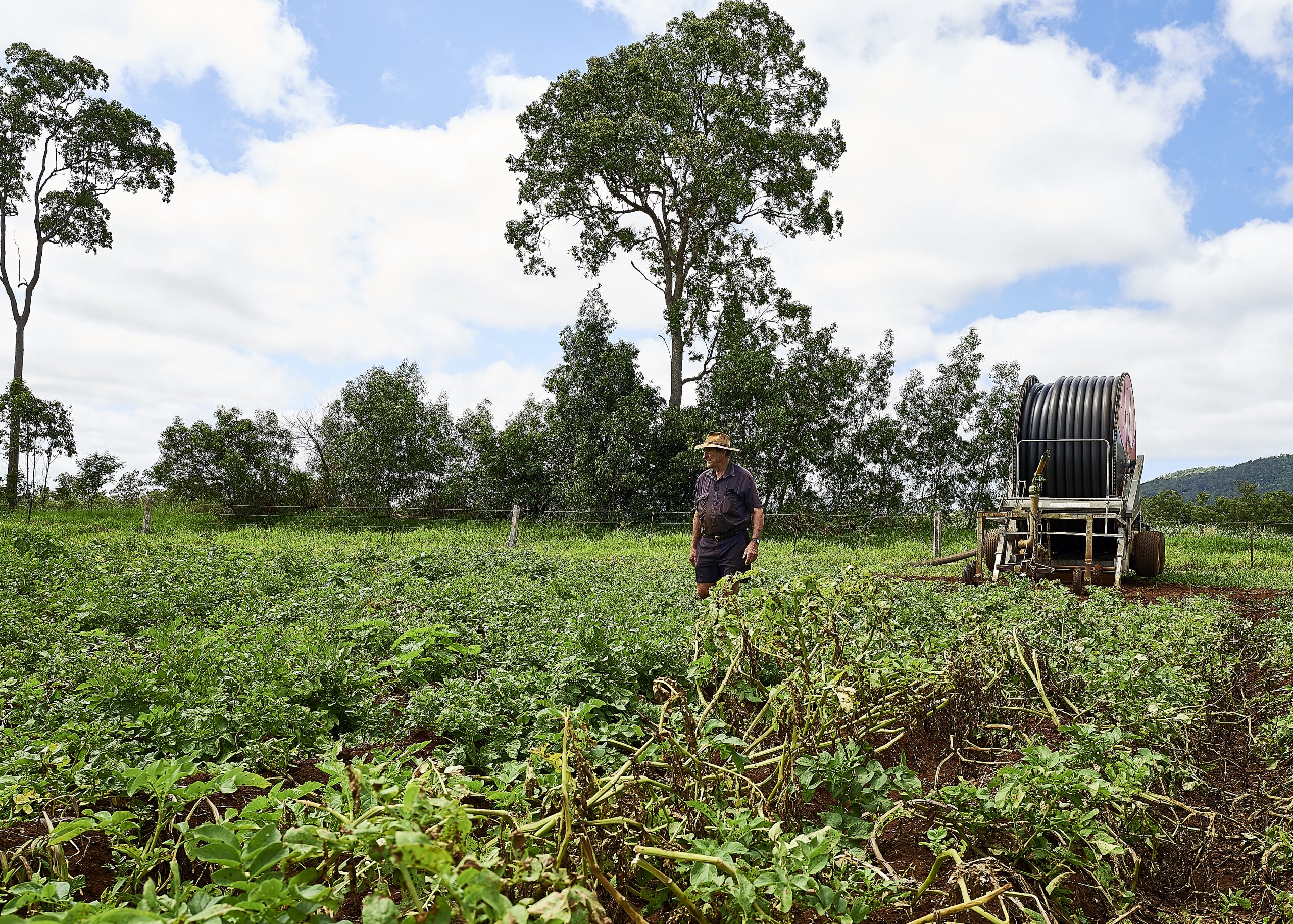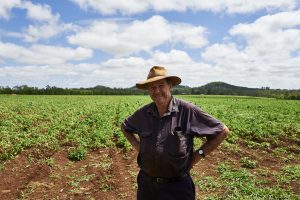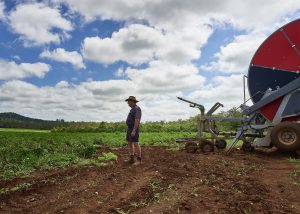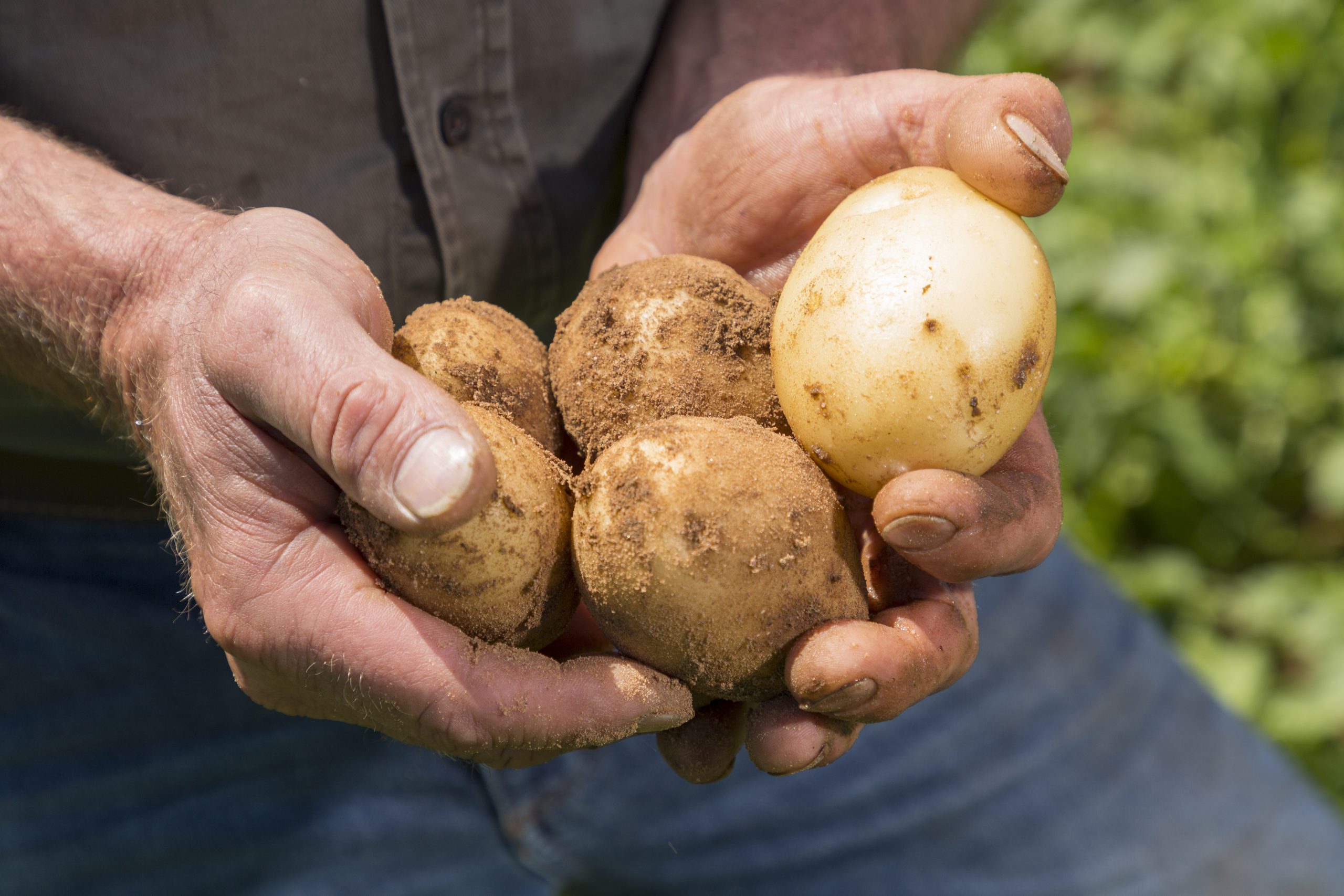
Aaron Haby: Right-royal rewards
23 April 2020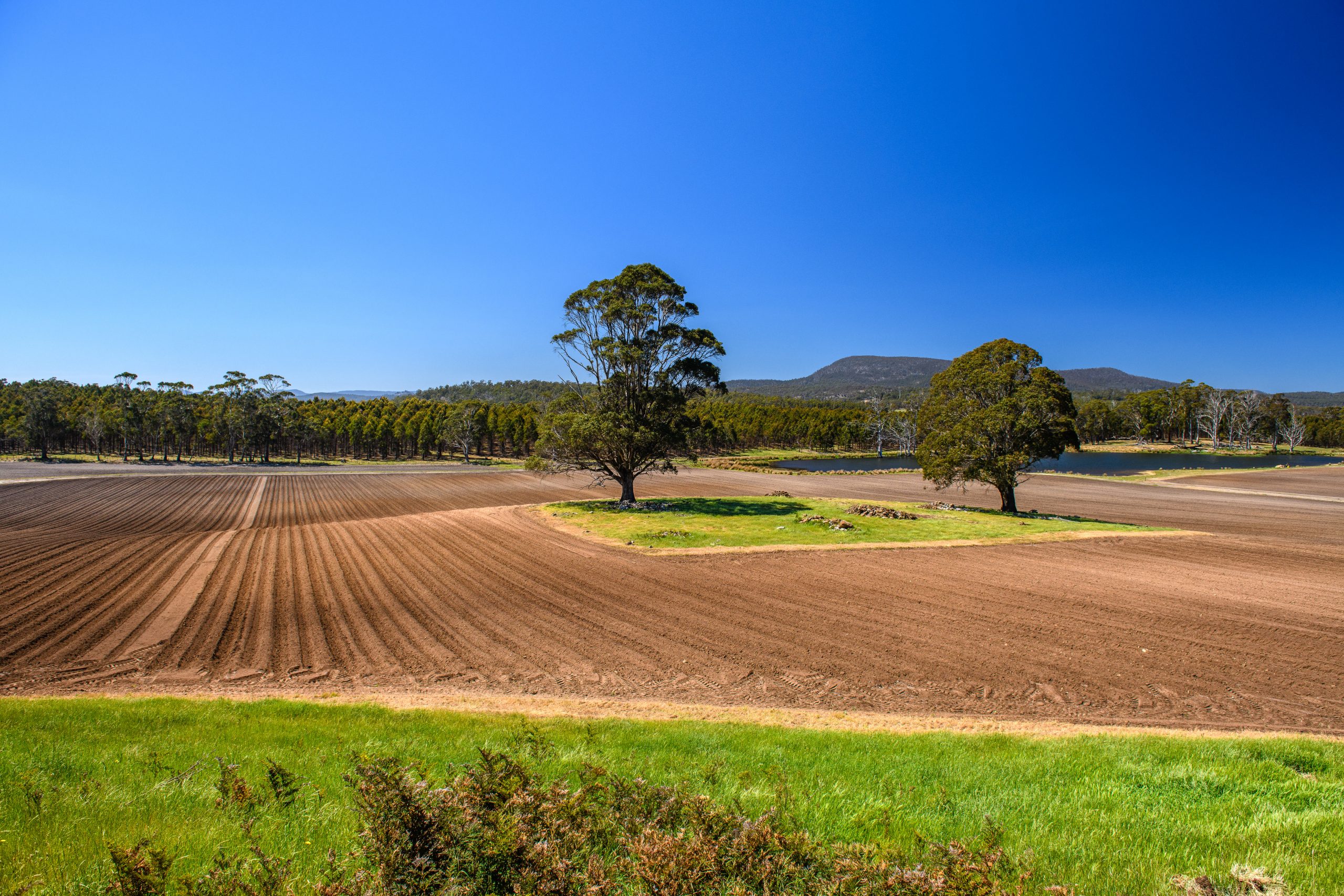
Andrew Wilson: Planting the seed for identifying disease
23 April 2020Prevention is always better than cure at David Nix’s Atherton Tablelands farm.
After all, the arrival of an unwanted pest or disease can instantly devastate the far-north Queensland potato grower’s livelihood – together with those of his neighbours, and regional and state colleagues if quarantine restrictions are imposed. That threat looms large every day, David says, with tomato-potato psyllid (TPP), fire ants, fruit flies and golden cyst nematode among the pests he wants to avoid at all costs.
Therefore, maintaining strict biosecurity practices is essential for growers to play their part in protecting Australia from exotic pests that could impact productivity, the national economy and our way of life.
Clear and present danger
Farm biosecurity involves putting in place practices to mitigate the risk of pests spreading onto your property, within your property or from your property.
“We’ve got some terrifying pests and major diseases out there that are right at our back door and could devastate our industry – as it has in New Zealand with zebra chip or the new strain of late blight in Papua New Guinea,” David explains.
“It’s a constant fear that tomorrow some nasty will turn up. But having the precautions and processes in place bring peace of mind, knowing that you won’t introduce or spread any disease. It’s your practices that make the difference.”
Producing about 1,000 tonnes of potatoes across 28 hectares, David and his small staff of permanent and casual employees at NixPax are ever vigilant.
Filling the niche when other areas can’t grow potatoes (NixPax plants from April until August, and harvests from July to December), David says growing a winter crop in 16 weeks with fewer hours of sunlight and surprisingly cold conditions already had its challenges, without the prospect of unwanted visitors. And in a market increasingly characterised by small margins and big volumes, David says it’s vital for the financial bottom line that preventive biosecurity practices are strictly maintained.
Clean sweep
The first step towards maintaining biosecurity measures on David’s farm is buying certified seed, predominantly from Victoria. Second is paddock rotation and a goal to rarely, if ever, grow a crop twice in the same paddock in a five-year period. This is complemented by weekly spraying (booms and aerial) and the agronomist-assisted introduction of beneficial species, such as parasitic wasps and lady beetles, to control the aphids and other “bad bugs”.
Another protection is iodine, which is used in the packing shed before shipping to Mitchell Foods for use in Lite n’ Easy products. Two computer-controlled systems control the doses of iodine in the washing water – an expensive but necessary practice that is “the best disinfectant you can get”.
Thinking ahead, David suggests a compensation scheme could be introduced for growers inadvertently caught in an outbreak.
“We are clean in comparison with a lot of other countries, including America, and miles cleaner disease-wise. But we’ve got to remain vigilant to keep it that way,” David says.
“Biosecurity comes in with a big hammer, which is understandable as the consequences of disease or pests escaping us are enormous.
“That’s why it’s so important to realise that biosecurity affects us all, and that we take whatever steps we can to prevent any outbreaks.”
Other on-farm biosecurity practices
- Maintain vehicle and equipment clean-down facilities at dedicated areas on-site, away from growing areas.
- Direct traffic with gate signs and inform visitors about property access points.
- Do not reuse cardboard packaging materials to limit the spread of pests and diseases.
- Maintain cleaning facilities (footbaths, brushes etc), making sure they are accessible for visitors and staff.
- Store waste away from growing areas/water sources. • Source planting material from reputable suppliers.
- Carry out regular pest surveillance in crops and surrounding vegetation.
Summary
-
- It is vital that preventive biosecurity practices are strictly maintained on-farm to protect Australia from exotic pests that could impact productivity and profitability.
- Potato grower David Nix uses certified seed and paddock rotation, as well as water-controlled iodine, crop spraying and beneficial insects to enhance biosecurity practices on his Atherton Tablelands farm in far-north Queensland.
- Many biosecurity activities in the potato industry are funded by the fresh potato research and development levy and contributions from the Australian Government, including National tomato potato psyllid (TPP) program coordinator (MT16018).
This article first appeared in the 2017 Grower Success Stories: Real results from the potato R&D levy.

